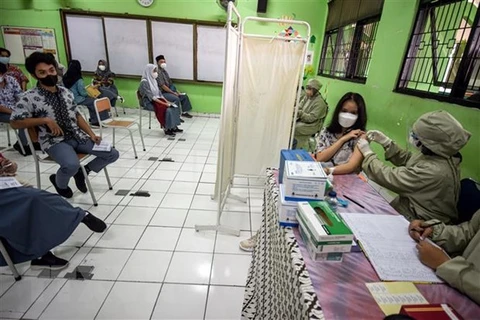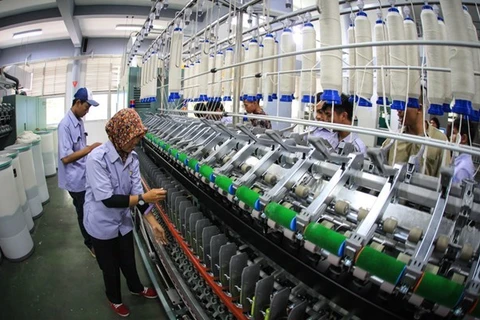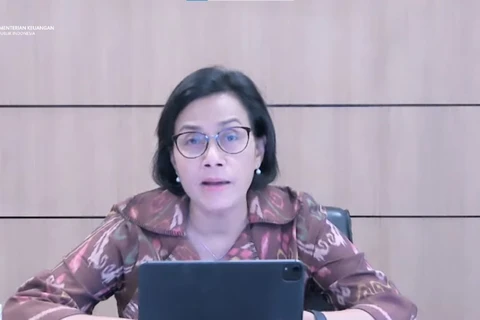Jakarta (VNA) – Indonesia has prepared necessary conditions to respond to the worst case scenario when the daily number of COVID-19 infections increases to 40,000-50,000, according to Indonesian Coordinating Minister for Maritime Affairs and Investment Affairs, Luhut Binsar Pandjaitan.
Luhut said that the Indonesian government has prepared facilities to be used as quarantine sites and strengthened the production of oxygen.
He affirmed that the supply of oxygen and medicines for hospitals is under control. Along with the ensuring of oxygen supply to quarantine and ICU rooms, the government will also order oxygen generators, he added.
Indonesia has set up oxygen coordinating teams to ensure the supply for hospitals amid the outbreaks of the pandemic in all localities of the country.
Earlier, Health Minister Budi Gunadi Sadikin said that the Indonesian government is planning to import medical oxygen tanks as the country is fighting the second wave of COVID-19 cases.
Sadikin said the ministry is planning to import oxygen cylinders measuring six cubic meters and one cubic meter to meet the need of additional emergency rooms in hospitals.
On July 5, Indonesia confirmed 29,745 new COVID-19 cases in 24 hours, a record number in a day since the pandemic hit the country, raising the national count to over 2.31 million. Meanwhile, 558 additional deaths were reported, pushing the death toll to 61,140./.
Luhut said that the Indonesian government has prepared facilities to be used as quarantine sites and strengthened the production of oxygen.
He affirmed that the supply of oxygen and medicines for hospitals is under control. Along with the ensuring of oxygen supply to quarantine and ICU rooms, the government will also order oxygen generators, he added.
Indonesia has set up oxygen coordinating teams to ensure the supply for hospitals amid the outbreaks of the pandemic in all localities of the country.
Earlier, Health Minister Budi Gunadi Sadikin said that the Indonesian government is planning to import medical oxygen tanks as the country is fighting the second wave of COVID-19 cases.
Sadikin said the ministry is planning to import oxygen cylinders measuring six cubic meters and one cubic meter to meet the need of additional emergency rooms in hospitals.
On July 5, Indonesia confirmed 29,745 new COVID-19 cases in 24 hours, a record number in a day since the pandemic hit the country, raising the national count to over 2.31 million. Meanwhile, 558 additional deaths were reported, pushing the death toll to 61,140./.
VNA
























